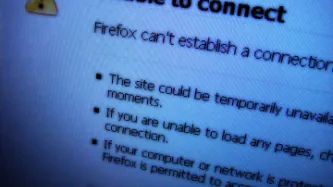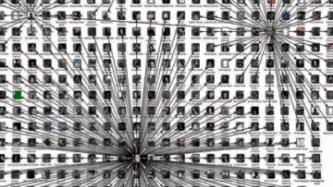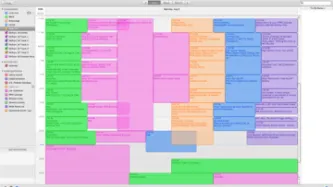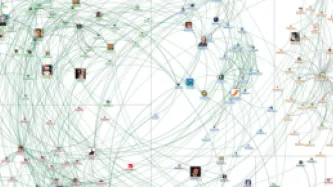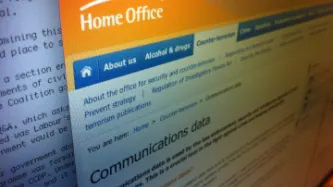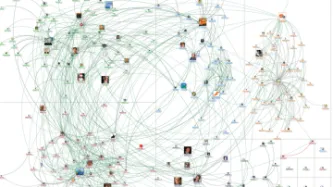Search
Content type: News & Analysis
Internet Connection Records are a new form of communications data created by the Investigatory Powers Bill at Parts 3 and 4. They constitute an unlawful interference with privacy with the ability to provide a highly detailed record of the activities of individuals, profiling their internet habits.
Clause 62 of the Investigatory Powers Bill (“IP Bill”) permits a wide range of public authorities to collect Internet Connection Records, however throughout debates on this highly controversial new…
Content type: News & Analysis
According to Snowden documents analysed by Privacy International, the Australian Signals Directorate had access to and used PRISM, a secret US National Security Agency program which provides access to user data held by Google, Facebook and Microsoft.
This is the third spy agency of the 'Five Eyes' alliance confirmed to have had secret access to Silicon Valley company data - an alliance whose rules and policies remain classified. Earlier this year, a British court ruled that GCHQ access to…
Content type: Press release
Governments must accept they have lost the debate over the legitimacy of mass surveillance and reform their oversight of intelligence gathering, Privacy International and Amnesty International said today in a briefing published two years after Edward Snowden blew the lid on US and UK intelligence agencies’ international spying network.
“The balance of power is beginning to shift,” said Edward Snowden in an article published today in newspapers around the world. “With each court victory,…
Content type: Press release
Privacy International and several other human rights organisations are taking the UK Government to the European Court of Human Rights over its mass surveillance practices, after a judgement last year found that collecting all internet traffic flowing in and out of the UK and bulk intelligence sharing with the United States was legal.
The appeal, filed last week by Privacy International, Bytes for All, Amnesty International, Liberty, and other partners, comes in response to a…
Content type: News & Analysis
Privacy International, Bytes for All and other human rights groups are celebrating a major victory against the Five Eyes today as the UK surveillance tribunal rules that GCHQ acted unlawfully in accessing millions of private communications collected by the NSA up until December 2014.
Today’s judgement represents a monumental leap forward in efforts to make intelligence agencies such as GCHQ and NSA accountable to the millions of individuals whose privacy they have violated.
The…
Content type: Press release
British intelligence services acted unlawfully in accessing millions of people’s personal communications collected by the NSA, the Investigatory Powers Tribunal ruled today. The decision marks the first time that the Tribunal, the only UK court empowered to oversee GHCQ, MI5 and MI6, has ever ruled against the intelligence and security services in its 15 year history.
The Tribunal declared that intelligence sharing between the United States and the…
Content type: News & Analysis
A year after the Eyes Wide Open program was launched here at Privacy International, we are just beginning to scratch the surface of the processes and justifications that agencies like GCHQ use to make their spying legally compliant. Tocqueville, a great philosopher of law stated:
“If they prize freedom much, they generally value legality still more. They are less afraid of tyranny than of arbitrary power, and provided the legislature undertakes of itself to deprive men of their independence,…
Content type: News & Analysis
In the wake of tragic attacks in France, politicians from across the world are calling for dramatically expanded surveillance powers, to spy on our phonecalls, ban encrypted communications such as WhatsApp and iMessage, and store details about our international travels for years on end.
If it feels like you've heard this story before, it's because you have. With each violent attempt by extremists to terrorise society, our political leaders dust off old, failed proposals such as the UK…
Content type: News & Analysis
We have learnt a lot in the last year about the dirty games GCHQ and NSA are playing to infiltrate the networks, tools and technologies we all use to communicate. This includes forcing companies to handover their customers’ data under secret orders, and secretly tapping fibre optic cablesbetween the same companies’ data centers.
Not content with that, we know now GCHQ are targeting companies systems administrators, exploiting the routers and switches in their networks to…
Content type: Press release
Britain’s top counter-terrorism official has been forced to reveal a secret Government policy justifying the mass surveillance of every Facebook, Twitter, Youtube and Google user in the UK.
This disturbing policy was made public due to a legal challenge brought by Privacy International, Liberty, Amnesty International, the American Civil Liberties Union, Pakistani organisation Bytes for All, and five other national civil liberties organisations[fn]Canadian Civil Liberties…
Content type: News & Analysis
The latest Snowden document revelation, which shows how GCHQ and the NSA are conducting broad, real-time monitoring of YouTube, Facebook, and Blogger using a program called "Squeaky Dolphin," is the most recent demonstration of the immense interception capabilities of intelligence services.
Despite the program's cute name, "Squeaky Dolphin" is shocking in its ability to intercept raw data, which includes sensitive personal and location information, and keep tabs on people across the world who…
Content type: News & Analysis
Big data consists mainly of data that is openly available, created and stored. It includes public sector data such as national health statistics, procurement and budgetary information, and transport and infrastructure data. While big data may carry benefits for development initiatives, it also carries serious risks, which are often ignored. In pursuit of the promised social benefits that big data may bring, it is critical that fundamental human rights and ethical values are not cast aside.…
Content type: News & Analysis
A strong, unified voice from the tech industry is absolutely essential to reforming the mass and intrusive surveillance programs being run by the Five Eyes, so we welcome today's statement from AOL, Apple, Google, Facebook, LinkedIn, Microsoft, Twitter, and Yahoo.
Companies have obligations to respect human rights and not be complicit in mass surveillance. Given what has been publicly revealed over the past six months, we must know for certain that the companies we entrust with our information…
Content type: Long Read
Privacy International filed formal complaints with the Organisation for Economic Cooperation and Development (OECD) in the UK against some of the world’s leading telecommunication companies, for providing assistance to British spy agency GCHQ in the mass interception of internet and telephone traffic passing through undersea fibre optic cables.
According to recent reports, BT, Verizon Enterprise, Vodafone Cable, Viatel, Level 3, and Interoute granted access to their fibre optic…
Content type: Press release
Privacy International today has filed formal complaints with the Organisation for Economic Cooperation and Development (OECD) in the UK against some of the world’s leading telecommunication companies, for providing assistance to British spy agency GCHQ in the mass interception of internet and telephone traffic passing through undersea fibre optic cables.
According to recent reports, BT, Verizon Enterprise, Vodafone Cable, Viatel, Level 3, and Interoute granted access to their fibre optic…
Content type: Long Read
Spy agencies have long sought to turn the technologies that improve all our lives against us. From some of the very first forms of remote communications such as telegraph cables, to modern-day means like Skype: if the spies can exploit it, they will.
And, as we’ve learnt over the last few months, the computer and mobile devices that millions of us own and carry around with us every day are no exception to this rule.
The smart phones, laptops, and devices that have changed how we communicate…
Content type: News & Analysis
In the PI office, we have daily debates about which platforms to use for our organizational operations. As a privacy charity, we are naturally concerned about the integrity of our own information services and resources, but we frequently receive queries about the best technologies to use from a variety of other organizations, some with very complex threat models.
The sad fact is that we are all poorly served by the range of services currently available. We worry that there is a significant…
Content type: News & Analysis
Mass surveillance affects us all
The draft Communications Data Bill - known as the 'Snoopers' Charter' - will dramatically expand police surveillance powers if it is voted into law. Innocent citizens would have all their communications and online activity monitored, all of the time. The government would store information about who we're texting, what we're searching for on Google and who we're friends with on Facebook. Police and HM Revenue and Customs officers would be able to access this…
Content type: Press release
The government today published a draft version of a bill that, if signed into law in its current form, would force Internet Service Providers (ISPs) and mobile phone network providers in Britain to install 'black boxes' in order to collect and store information on everyone's internet and phone activity, and give the police the ability to self-authorise access to this information. However, the Home Office failed to explain whether or not companies like Facebook, Google and Twitter will be…
Content type: News & Analysis
What do we know?
Very little. The Communication Capabilities Development Programme (CCDP) is going to be included the Queen's Speech next month and we still haven't had public confirmation of the details. What we do know is that there have been secret briefings to MPs designed to scare them into compliance, and secret briefings to industry that were originally designed to calm their fears (but in fact have only served to increase their outrage).
What was previously proposed?
In 2009 the Home…
Content type: Press release
An internal Liberal Democrat briefing on Home Office plans to massively expand government surveillance was today passed to Privacy International. The document contains significant evasions and distortions about the proposed 'Communications Capabilities Development Programme' (CCDP), and is clearly intended to persuade unconvinced Lib Dem MPs to vote in favour of the proposal.
The document contains a section entitled 'Remember, under Labour' consisting of a list of the previous government's…
Content type: News & Analysis
For the past 18 months, I've been investigating the export of surveillance technologies from Western countries to despotic regimes, but I never thought I'd see a democratic government proposing to install the kind of mass surveillance system favoured by Al-Assad, Mubarak and Gaddafi. Yet the Home Office's latest plans would allow the authorities unprecedented levels of access to the entire population's phone records, emails, browsing history and activity on social networking sites,…




